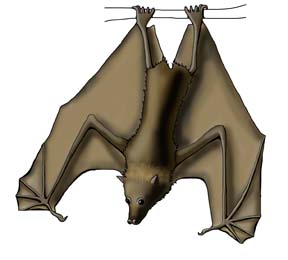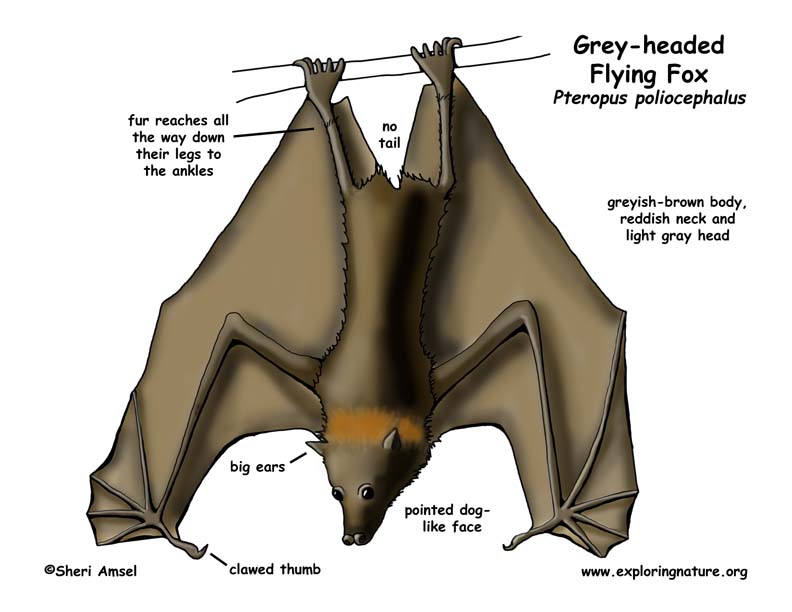

They live in Australia and Southeast Asia.
They are found in dense forests, rainforests and swampy areas.
This is the largest bat in Australia, weighing up to 2 pounds and with the body and head reaching almost a foot long (29 cm). They have pointed dog-like faces – which is why they are called “flying foxes.” They have a greyish-brown body, reddish neck and light gray head. Their fur reaches all the way down their legs to the ankles and they have no tail. They have big ears for listening because they do not have echolocation for night flight.
They sleep (roost) during the day in large groups or colonies. They hang by their feet in the trees upside-down and wrap their wings around their bodies. They are active at night (nocturnal) flying out of the roost at dusk.
They eat fruit and flowers. They are important to the forest because they pollinate flowers and spread seeds.
Predators that eat them are pythons and eagles.
Females are pregnant for up to 7 months (gestation). They have 1 baby. Females carry their young with them when they feed at night for the first three weeks and nurse them for up to 6 months.
They live 15-20 years in the wild (lifespan).
Kingdom: Animalia
Phylum: Chordata
Subphylum: Vertebrata
Class: Mammalia
Order: Chiroptera
Family: Pteropodidae
Genus: Pteropus
Species: P. poliocephalus
When you research information you must cite the reference. Citing for websites is different from citing from books, magazines and periodicals. The style of citing shown here is from the MLA Style Citations (Modern Language Association).
When citing a WEBSITE the general format is as follows.
Author Last Name, First Name(s). "Title: Subtitle of Part of Web Page, if appropriate." Title: Subtitle: Section of Page if appropriate. Sponsoring/Publishing Agency, If Given. Additional significant descriptive information. Date of Electronic Publication or other Date, such as Last Updated. Day Month Year of access < URL >.
Amsel, Sheri. "Flying Fox (Grey-headed), Megabat" Exploring Nature Educational Resource ©2005-2024. December 13, 2024
< http://www.exploringnature.org/db/view/310 >

